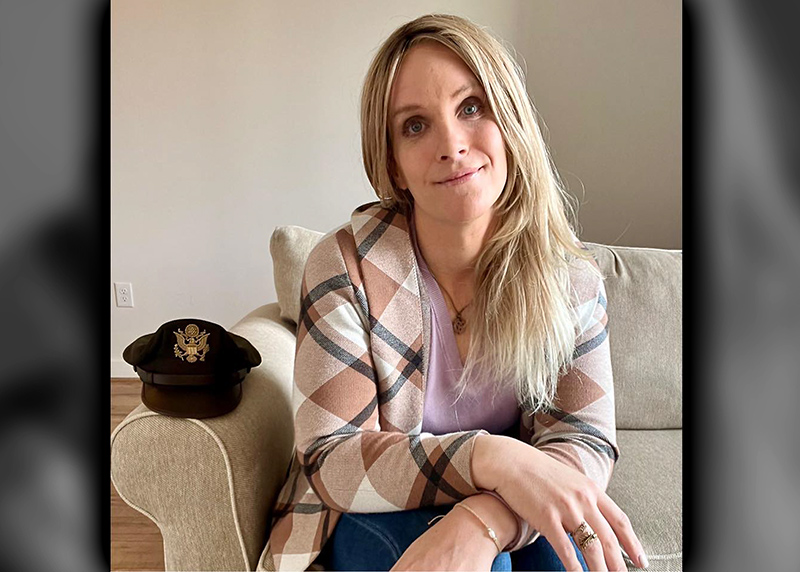ACLU warns of coming wave of “religious exemption” bills
Anti-LGBT forces will seek to use legislatures or the courts to avoid treating LGBT citizens equally

The American Civil Liberties Union (ACLU) is warning that social conservatives and anti-LGBT advocates could be intending to push laws and policies that would legalize discrimination against LGBT people under the guise of religious freedom.
In a Wednesday afternoon conference call, James Esseks, the LGBT Project Director for the ACLU, said that experts from his organization expect to see a number of attacks aimed at undermining or defying marriage equality or carving out special religious exemptions for people who oppose either same-sex marriage or homosexuality in general. Esseks said that opponents of LGBT rights will seek to accomplish their aims through a series of bills being proposed in various state legislatures and through lawsuits or counter-lawsuits working their way through the courts.
“This is in some sense, the Plan B for those whose Plan A — which was stopping LGBT equality laws wholesale — hasn’t worked out so well,” Esseks said. “Religious freedom is central to America’s core identity. It is a central part of the Constitution, something the ACLU is very seriously devoted to. But we know that religious freedom doesn’t give anyone the right to harm other people. That’s not religious freedom, that’s discrimination.”
Esseks said that the phenomenon of people seeking religious exemptions has been part of the nation’s history following passage of the Civil Rights Act in 1964, as well as after the passage of measures aimed at women’s equality in the 1970s and 1980s, and even related to people with disabilities, with some people even seeking to deny medical treatment to people with HIV because they thought their personal behavior was sinful.
Within that historical context, Esseks said efforts to undermine LGBT rights are part of a tradition of what is often a minority of people attempting to use “religious liberty” as an excuse to discriminate. Pointing to polling data from an October poll by the Public Religion Research Institute and a September poll by ABC and The Washington Post, which showed, respectively, that 62 percent of Americans opposed allowing businesses to deny services to gay and lesbian people by citing their religious beliefs, and that 63 percent of those surveyed said that government officials like Kentucky Clerk Kim Davis should be required to issue same-sex marriage licenses even if it conflicts with their personal beliefs.
Esseks noted that, particularly following the defeat of Houston’s pro-LGBT nondiscrimination ordinance earlier this fall, the ACLU is expecting “a tremendous wave” of bills aimed at curtailing transgender rights, particularly in the area of restroom access for transgender students at schools. Several school districts throughout the country, particularly in the South or rural areas, have attempted to preempt what they fear will be future rulings by the U.S. Department of Education or the courts that would allow transgender students to use the restroom or locker room consistent with their gender identity. Some of those cases, such as one out of Gloucester County, Virginia, are still working their way through the courts.
Eunice Rho, advocacy and policy counsel for the ACLU, said that in 2015, more than 90 pieces of legislation — many of them in the form of Religious Freedom Restoration Acts (RFRAs) — were introduced in various legislatures, attempting to use religion as an excuse to discriminate against LGBT people. Yet LGBT advocates were successful defeating almost all RFRA-type legislation in all but three states: Arkansas, Michigan and Indiana, where state lawmakers and Gov. Mike Pence were eventually forced to offer a “fix” after receiving a backlash of negative publicity and criticism from individuals and particularly the nation’s business community following passage of the RFRA.
“Those of us who are engaged in this work know our opposition is regrouping and re-strategizing,” warned Rho. “We are preparing for an aggressive push from the other side in legislatures to try and erode gains for LGBT Americans, and we know they will not relent.”
Rho said sources on the ground are expecting RFRA-style laws to be brought up in states like Georgia, Colorado, North Carolina, Ohio and Oklahoma, with Georgia being the most likely. After Indiana passed its RFRA law, business interests like the Indianapolis Chamber of Commerce began talking to their counterparts in the Greater Atlanta Metro area to explain the negative effects that passing the RFRA had on the Hoosier state as a cautionary tale. Rho also said that 2016 could see the introduction of congressional legislation that would “fix” the federal RFRA statute to ensure it was not being used to harm any particular group, such as LGBT people.
Another type of bill that Rho expects will be introduced is a First Amendment Defense Act — based on a proposed federal bill of the same name — that would seek to shield people who wish to discriminate against same-sex couples or LGBT individuals from government retribution or penalties, such as losing a license, certification, tax credit or contract with the state. Rho said sources believe that such legislation may be introduced in West Virginia.
Other bills with anti-LGBT animus include: broad exemption bills that allow people or actors to refuse to recognize a same-sex marriage as valid; bills to carve out exemptions for government officials who do not wish to issue or recognize marriage licenses, which are expected in Kentucky and Alabama; and bills to allow for-profit businesses to refuse to provide services or goods to people based on their personal opposition to homosexuality or same-sex marriage. The last bill is expected to be introduced in New Mexico and Colorado, where a wedding photographer and a bakery, respectively, have come under fire for violating state nondiscrimination laws for refusing to serve same-sex couples.
Still other bills include so-called “conscience clause” bills governing foster care or adoption agencies that would allow the agencies to refuse to place children with same-sex couples or homosexual individuals — even if in the child’s best interest — by citing religious or moral beliefs. Such laws already exist in states like Virginia, and are expected to be a topic of debate in both Alabama and Florida during the 2016 legislative session. Kansas and Missouri, meanwhile, are expected to introduce bills that would require public colleges and universities to fund student groups that wish to flout the university’s own nondiscrimination policies.
Ria Tabacco Mar, an attorney with the ACLU’s LGBT Project, also noted that there are several ongoing lawsuits being litigated, including one against Kim Davis in Kentucky regarding her interference with the marriage licensing process for same-sex couples. Other lawsuits working through the courts are nondiscrimination cases in Illinois, New York, Colorado and Washington state where LGBT opponents are appealing decisions finding that they’ve violated existing state nondiscrimination laws. Their lawyers have asked the courts to grant special religious exemptions justifying their decisions to discriminate against same-sex couples in public accommodations, such as a bakery or flower shop.
“In all of these cases, business owners have made the same argument: they’ve asked for a religious exemption from laws that apply to everyone,” Tabacco Mar said. “So far, in all of these cases, the courts have said the answer is ‘No.'”
Support Metro Weekly’s Journalism
These are challenging times for news organizations. And yet it’s crucial we stay active and provide vital resources and information to both our local readers and the world. So won’t you please take a moment and consider supporting Metro Weekly with a membership? For as little as $5 a month, you can help ensure Metro Weekly magazine and MetroWeekly.com remain free, viable resources as we provide the best, most diverse, culturally-resonant LGBTQ coverage in both the D.C. region and around the world. Memberships come with exclusive perks and discounts, your own personal digital delivery of each week’s magazine (and an archive), access to our Member's Lounge when it launches this fall, and exclusive members-only items like Metro Weekly Membership Mugs and Tote Bags! Check out all our membership levels here and please join us today!

























You must be logged in to post a comment.